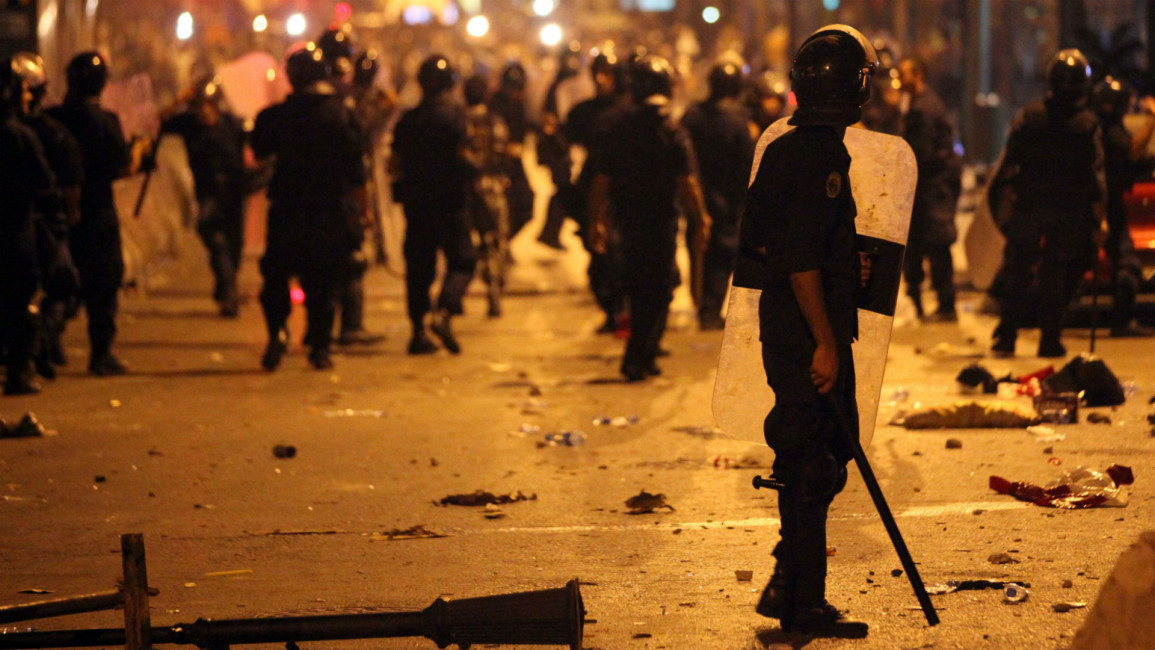HRW: Lebanese forces must be held accountable for violence
A human rights organisation has called on Lebanese authorities to hold accountable those responsible for violent attacks against protesters in Beirut, following mass demonstrations in the country.
During the protests last weekend, driven by anger over garbage piling up streets of Beirut following the closure of a main landfill, Lebanese security personnel used rubber bullets, tear gas canisters, water cannons, butts of rifles, and batons to control protesters, Human Rights Watch (HRW) said.
It's long past the time for Lebanon to get serious about holding its security forces accountable. - Nadim Houry, Human Rights Watch |
They also fired live ammunition, reportedly into the air, to disperse protesters, the group added.
"Lebanon has an unfortunate habit of opening investigations into violence by security forces but never concluding them," said Nadim Houry, deputy Middle East director at Human Rights Watch.
The organisation called for measures to be taken to ensure there was no repeat of the violence, and for an independent, effective, and transparent investigation into the events.
State prosecutor Samir Hammoud has tasked military prosecutor judge, Sakr Sakr, with investigating the violence.
Under Lebanese law Sakr has jurisdiction over crimes committed by the security forces.
'You Stink' demonstrations
Protests which began in July and organised by the "You Stink" movement and other groups have been calling for a solution to the waste crisis.
They soon developed into protests against political and economic corruption and the state of public services in the country.
On August 22, around 5,000 demonstrators assembled in Riad al-Solh Square, stirred by police violence used against protesters earlier that week.
The peaceful protest quickly escalated into a confrontation between demonstrators and the police, during which riot police shot live ammunition into the air and used tear gas, water cannons and rubber bullets to disperse protesters.
Lebanese Red Cross said 75 protestors were injured on August 22, 15 of whom were hospitalised.
In addition to this, 35 policemen were injured, according to the Internal Security Forces (ISF).
"Policing demonstrations can be challenging, but what happened on Saturday was clearly an unjustified excessive use of force," Houry said.
"The police seemed more interested in teaching protesters a lesson than in maintaining public order."
The following day further protests took place, during which the ISF reported 99 people were wounded, including protesters and security officers, and 32 were detained.
HRW said those policing riots should abide by the UN basic principles on the use of force and firearms by law enforcement officials.
This calls on law enforcement officials to apply nonviolent means before resorting to force, to limit the use of force in proportion to the seriousness of the offense, and to use lethal force only when strictly unavoidable to protect life.
It reported that the ISF adopted a code of conduct in 2011 that says: "Police members will not resort to the use of force unless it is necessary, proportionate and after exhausting all possible non-violent means, within the minimum extent needed to accomplish the mission."
A 'recurring' problem
HRW reported that impunity for violence by security forces is a recurring problem in Lebanon.
According to public information Lebanon has never investigated incidents in which security forces, including the army, used force against protesters.
These include the violent dispersal of Palestinian protesters in Northern Lebanon on June 29 2007, which left two Palestinians dead and at least 28 injured; and the violent dispersal of protesters in Hay al-Sellom, a poor neighbourhood in Beirut, on May 27 2004, when five protesters were killed and dozens wounded.
"It's long past the time for Lebanon to get serious about holding its security forces accountable," Houry said.
"The authorities need to deliver on their promises of effective investigations and accountability, or the laws that are supposed to protect Lebanese from abuses and ensure respect for basic rights will have no deterrent effect" Houry added.



